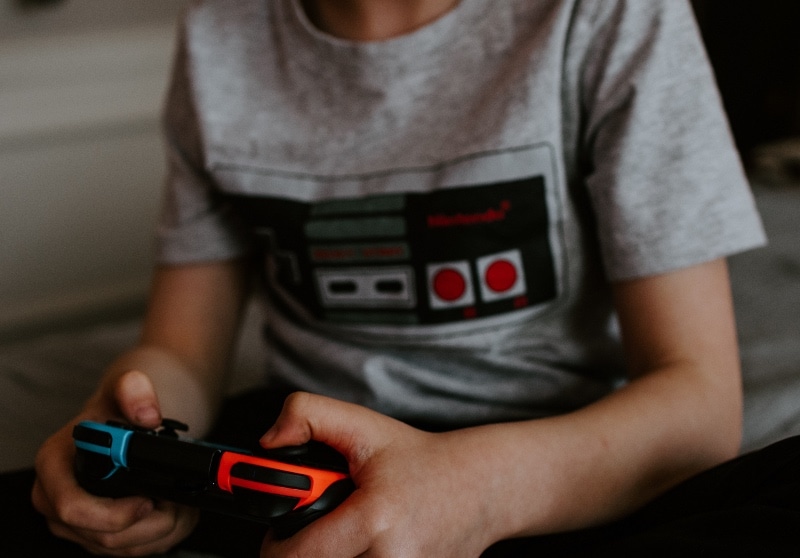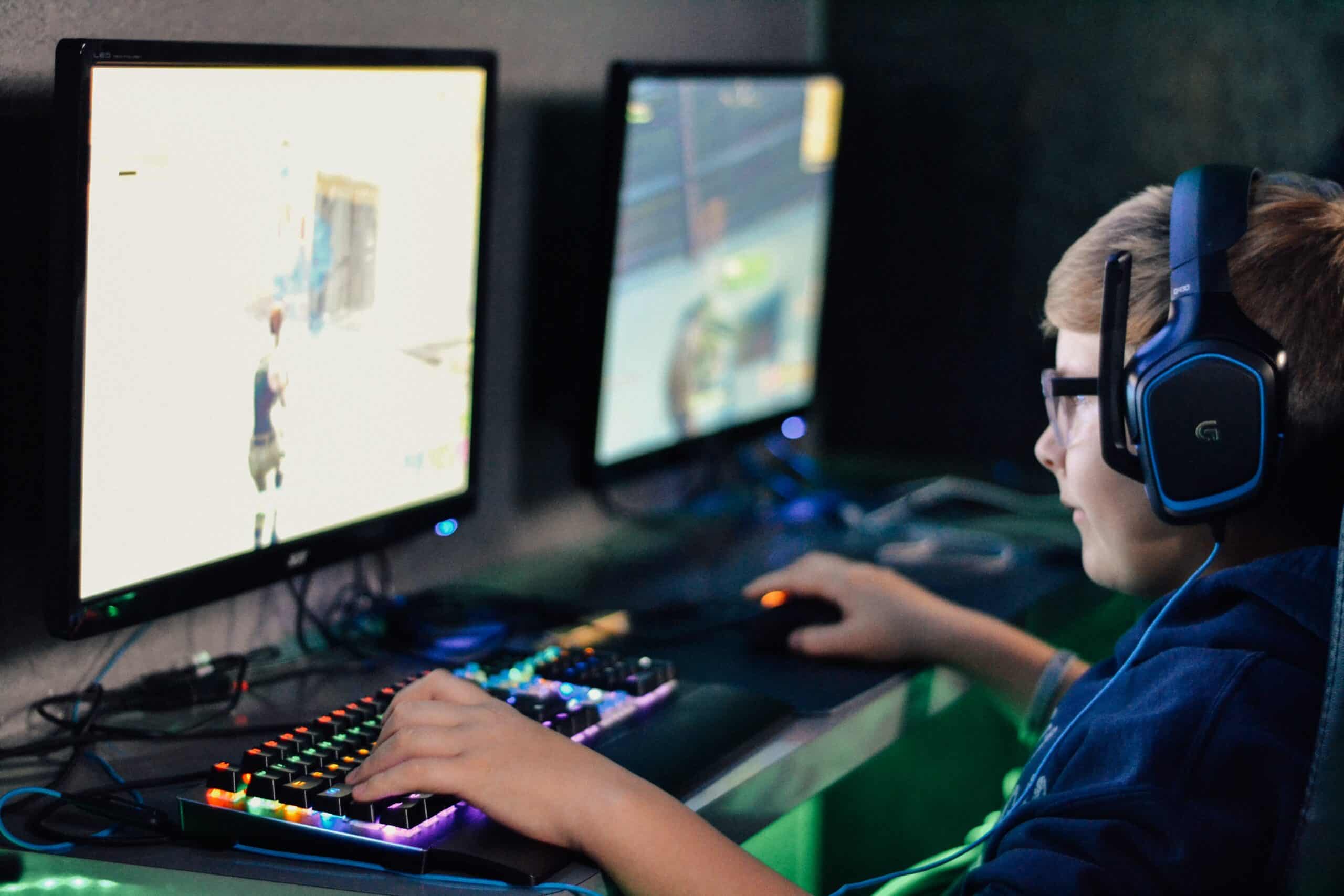Researcher of the Month
Does gaming heavily have a negative impact on teens’ wellbeing?
In recent decades, there has been a shift to screen-based and web-based gaming activity. This has led to concerns in commentaries and the popular press about how gaming might affect children and teens. Despite decades of research into gaming and related psychosocial effects, questions remain about how best to identify what degree or context of gaming may be a cause for concern.
Along with her team, our Researcher of the Month, Dr Simona Skripkauskaite, aimed to classify young gamers into ‘gamer profiles’ based on their gaming behaviours and wellbeing, and distinguish between those engaging in adaptive versus maladaptive gaming patterns.
Results indicate that, whilst a substantial proportion of teens now spend much of their free time playing video games, for the vast majority gaming does not impact negatively on their wellbeing and is not related to mental ill-health. A small and important subgroup are more likely to show signs of problematic gaming and lower wellbeing. These are more likely to be girls who are gaming on their phones.
Summary
“The majority of young people spending much of their time gaming seem to be experiencing few negative effects with regard to their wellbeing.”
Dr Skripkauskaite used data from the OxWell Student Survey which asks 9-18 year old students in England over 200 questions on a range of wellbeing and mental health measures. In the June/July 2021 data collection, 12,725 participants from school years 8-13 answered questions on gaming. 3970 (31.2%) of these teens indicated that they played games on an electronic device for at least 3.5 hours a day.
As previous research suggests that over four hours of daily digital engagement or video gaming is more likely to indicate impaired psychosocial functioning, only those participants who played games for at least 3.5 hours per day were asked more detailed questions for inclusion in Dr Skripkauskaite’s study. These teens were asked how much they game on their phone and computer, their experiences with games in the preceding six months (the impact on their mood, levels of tolerance, any problems or conflicts), their mental wellbeing and some personal characteristics and experiences, including their age, gender, potential family risk factors, school experiences. They were also asked about specific gaming behaviours such as playing late at night, gambling or spending money on in-game purchases.
From this data, Dr Skripkauskaite distinguished six types of heavy gamers and found that most experienced no concurrent issues of concern with their wellbeing or mental health. Reassuringly, 44% of the sample was found to be adaptive computer gamers. Though they gamed a lot (on computers more than on phones), they had a medium level of control over their gaming and had the highest levels of wellbeing, higher, in fact, than some children who reported not gaming at all. For this large group of teens, gaming seems to be a healthy activity even when they play for multiple hours per day. This correlates with a growing body of recent evidence from large-scale studies showing that direct negative links between the amount of time a teens spends engaging with digital technology and their wellbeing or mental health are either nonexistent or weak.
However, the study also highlights individual differences. There are known to be a small proportion of teens (2% – 9%) who do exhibit ‘problematic’ gaming behaviours, such as impaired self-regulation and a loss of control over their gaming. This kind of problematic gaming is known to correlate with lower wellbeing, aggressive behaviours, depression, loneliness and poor sleep quality. In this study, 6% of gamers were categorised as ‘maladaptive computer gamers’ and a further 2% were categorised as ‘maladaptive phone gamers’. These teens had poor control over their gaming and low levels of wellbeing, particularly the teens playing games a lot on their phones. The maladaptive phone gamers were mostly female. They were also more likely to report high levels of anxiety and having experienced abuse or neglect.
Gaming is increasing in popularity among girls and other studies have shown that female gamers predominantly play on their mobile phones, rather than computers or consoles. It’s possible that female gamers who struggle with lower wellbeing because of previous traumatic experiences seek out phone gaming as a coping mechanism. Previous research has shown that extrinsic or escapist motives, rather than playing for fun, are more likely to relate to negative gaming consequences. Further research is required to understand causal mechanisms and Dr Skripkauskaite notes that it is important to learn more about the groups of teens with poor control of gaming and co-occurring low levels of wellbeing in order to support them if their difficulties become significant.
Implications
“Findings suggest that certain groups of gamers are at greater risk for co-occurring gaming and wellbeing issues.”
Implications for parents
Parents are often concerned about the amount of time that their children spend on screens. It’s reassuring to remember that, whilst many children and teens choose to game a lot, in and of itself, this doesn’t seem to be impacting negatively on the wellbeing of most individuals. However, significant phone gaming, particularly in girls, may be linked with poorer mental health. If you are concerned that your child is gaming excessively or problematically, try to focus on the gaming as a symptom, rather than the cause of any issues. Consider their motivations for gaming a lot. Are they enjoying social time with friends online or are they gaming alone for hours? What sort of games are they playing? Can you join in and play too? What else is going on in their lives? Lean into their experiences and open up lines of communication.
Implications for mental health practitioners
Rather than targeting time spent playing video games, using video gaming as a tool presents an opportunity for more affordable and less stigmatising mental health interventions for teens.
Resources Created from and Related to this Research

Dr Simona Skripkauskaite, Postdoctoral Researcher at the University of Oxford.
Dr Simona Skripkauskaite works for Oxford’s Co-SPACE study (COVID-19: Supporting Parents, Adolescents and Children During Pandemics) and the OxWell Student Survey, where she has been focusing on effects of gaming and social media on adolescent mental health. Dr Skripkauskaite also leads a project on ‘Learning from the trajectories of mental health challenges for children, young people and parents over the course of the Covid-19 pandemic’, which will compare how families have been affected by the pandemic in the UK and Japan. Overall, her research to date has aimed to identify developmental processes underlying successful functioning, but has ranged across child and adolescent mental health, emotion regulation, and parent-child relationships, as well as neurodiversity, visual attention, and perception.








